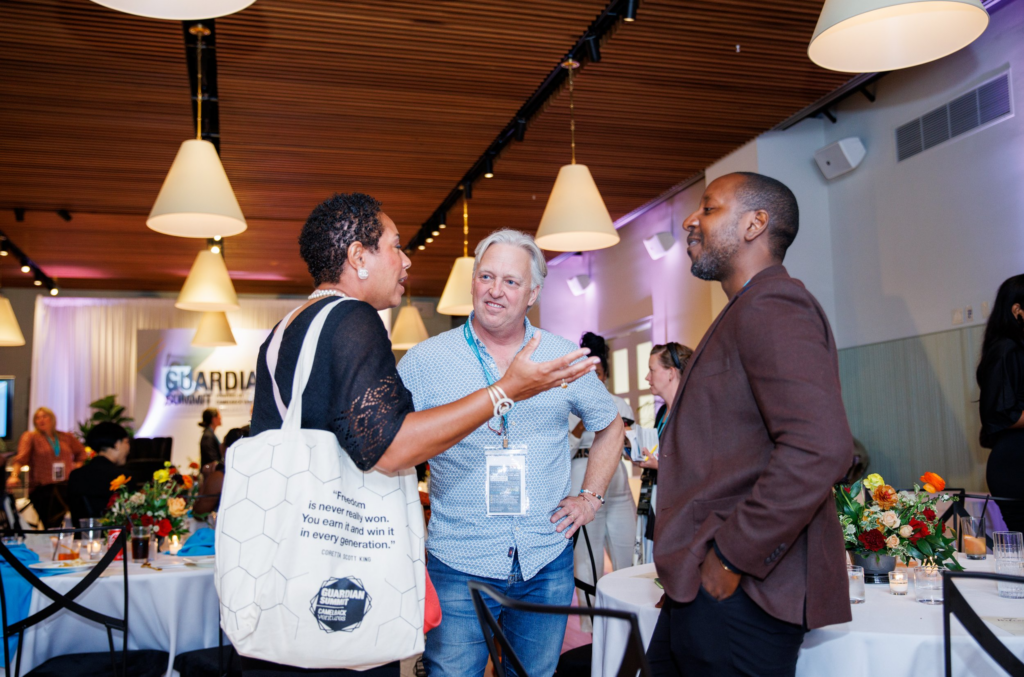What It Means to Be a Guardian: Reflections from Camelback’s Guardian Summit
by Jessie Tang

June 28, 2022
Gratitude was excited to partner with Camelback Ventures and sponsor this year’s Guardian Summit on June 1st and 2nd. New Orleans, a city steeped in rich Black history and culture, was the perfect setting to delve into collaborative sessions of how we can help close racial wealth gaps and create equitable outcomes through capital. Eric Jacobsen, Thomas Knowles and I represented the Gratitude team during the Summit, and we were thrilled to be able to see other impact partners of ours, including Spring Point Partners, and Ballantine.
Founded in 2015, Camelback increases access to opportunity for entrepreneurs of color and women by investing in their ventures and leadership while advocating for fairness in their funding. Last year they launched the Ruthless for Good Fund to invest in promising underrepresented founders addressing social issues, and their LP meeting coincided with the Summit. We are incredibly grateful to call Camelback close partners and collaborators who have helped push us on our racial equity journey and work.
The Guardian Summit is intended to provoke mind shifts and design interventions to evolve into a new entrepreneurial and fund ecosystem for communities of color. Gratitude investors and members are aligned with how Camelback has defined “Guardians” — people who are committed to using their assets (monetary, social capital, expertise, etc.) to build inclusive wealth and implement values and policies that can endure across future generations.
This was their first in-person Summit since COVID, and we were so grateful to have the opportunity to convene and engage with change makers and impact leaders through powerful workshops and fireside chats. The Guardian Summit pushed us to do a lot of internal reflection about the racist and inequitable systems we live within, and how we can use our power, voice, and capital to promote change. David Clunie from the Black Economic Alliance (BEA) walked us through how social movements have been effective at bringing about change, and how the BEA is leveraging the power of organizing people and capital to drive prosperity and economic security for all Black people. Gabrielle Wyatt from the Highland Project facilitated a powerful workshop on how we can ensure Black women and women of color thrive. Salam Kebrom of Camelback helped us envision a world where conscious technology was at its core. Gratitude Railroad also hosted a master class breakfast on impact investing to discuss the opportunities and challenges of investing with an impact lens.
Deb Elam, one of the honorees from the Guardian Summit and the first Black female corporate officer at GE, had to break a lot of ground and support others as she rose. She sagely stated: “It’s an honor to be the first; it’s a shame to be the only.” This was an important reminder that creating sustained change requires implementing systems and policies that will ensure progress is continued and not singular.
So how do we better support BIPOC and underrepresented entrepreneurs and extend beyond the pipeline problem? Camelback’s entrepreneurs and speakers gave us some insight:
- It’s not a pipeline problem; it’s a capital allocation problem
- Investors and funders need take on the onus of being better networkers.
- Investors need to act sooner, invest more, and think longer term
- Investors need to lower barriers to entry and reduce the amount of paperwork required for funding
The Summit underscored the power of in-person interactions to build trust quickly and share vulnerably. There was such great energy in the room as we openly discussed why the current investment system isn’t working for everyone, and how to change it. I felt a new sense of urgency to act. As a community of individuals who have resources and want to create impact through aligning values with investing, Gratitude is in a position to help reframe risk into opportunity. As we continue to invest with deeper awareness around systemic and implicit bias, we are grateful to have opportunities like these to continue learning and leaning on leaders of color and women who bring the lived experience to create more equitable solutions and generate the deepest impact.



